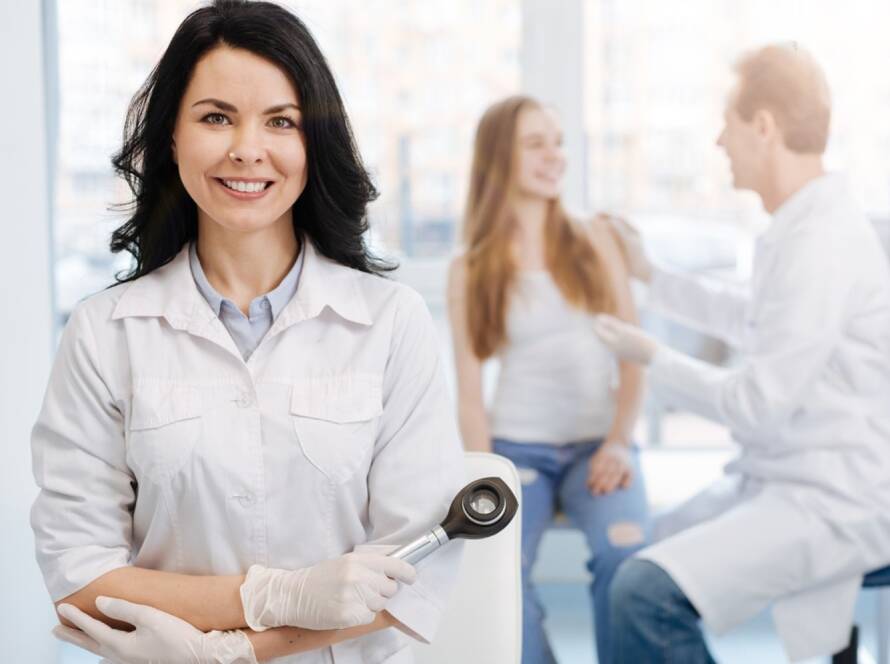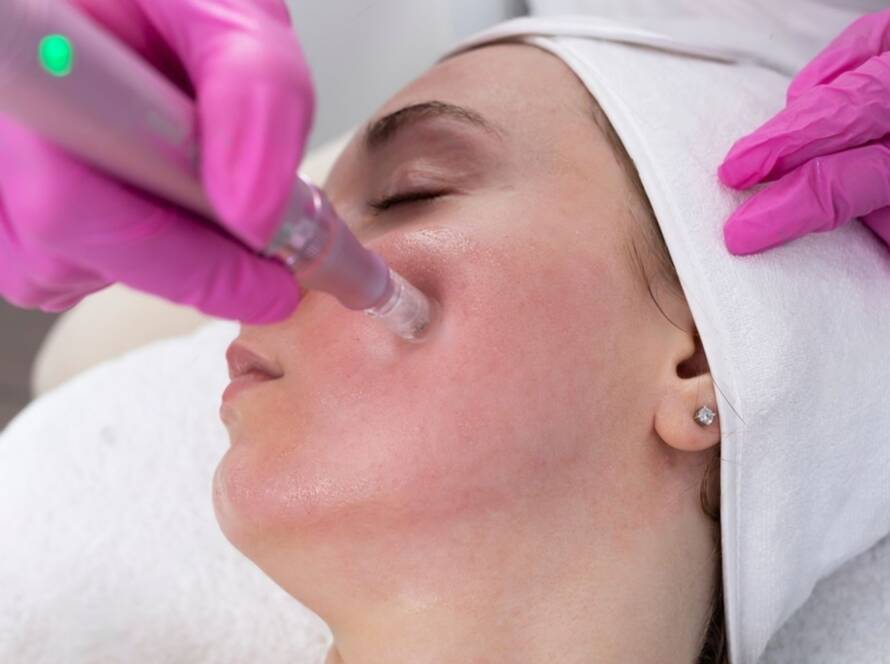Is popping pimples bad? The sensation of popping pimples is rewarding. But how do you accomplish it right?
Acne is a widespread skin condition that affects not only teenagers but young adults as well. It is generally viewed as a problem that occurs during the adolescent years and mostly affects girls; however, that is completely inaccurate.
The problem of acne can be seen in various forms and age groups for both genders.
What is the perfect time to pop pimples?
When executed correctly, popping pimples is an art that is absolutely safe and not nearly as hazardous as it’s believed to be. But the problem arises when it’s done incorrectly.
Because it’s not widely known how to treat a pimple safely and cleanly, most people must do it correctly. This can improve the chance of infection, which in turn causes more acne.
This is why doctors advise against popping the pimple.
What Happens When You Pop Your Pimple?
Popping acne can make it more difficult if you need to do it right. It’s something that everybody can agree upon by their own experiences.
The principle behind popping pimples is to remove the pus. The pimple is usually a cellulite that has died, the natural oil-sebum and bacteria. After squeezing out the pus, the contents may go deeper into the skin, thus sparing, adding inflammation to all the skin’s layers.
It’s not advised to pop a pimple on your own, but remember that you should beware of cysts and nodules beneath the skin’s surface.
Popping them can cause more infection and irritation to the skin to an even greater extent.
If you can’t benefit from the urge to pop your pimple, it could be more challenging to heal, which could lead to permanent or lasting effects like:
#1 Acne Scarring
Popping pimples and causing irritation to the skin surrounding the acne isn’t advised, and the most frequent consequence of this sloppy habit can be long-lasting acne scarring.
Since popping a pimple can compromise the skin’s integrity, the skin must go through the healing process to heal the injury.
The healing method is further hindered by skin irritation caused by constant pulling, which may cause scabs and marks lasting for a long time.
Scarring can occur when the healing process is not sufficient.
This causes tissue loss that pays off in the formation of pits on the skin. In essence, these pits are depressed scars that negatively affect the skin’s texture and may also cause excessive skin coloring.
#2 Post Inflammatory Hyperpigmentation (PIH)
In addition to pitting, the skin can develop PIH or dark spots following the acne breakout. While hyperpigmentation might not necessarily remain long, it may take a few months or years to disappear.
The use of abrasive products or treatments can hinder the healing process. The more inflammation in the area, the more visible the discolouration will appear. Some acne marks never fade over time.
The red or brown spots on the pimple are more frequent and more severe in those with darker skin tones.
But this doesn’t mean people with lighter skin tones aren’t susceptible to hyperpigmentation after inflammation.
The only way to avoid dark spots on the face is to avoid making pimples pop and pick them up at all costs. Whatever tempting it might be, you should avoid popping acne or let a doctor of aesthetics take care of the pimple instead.
Alternatively, you could take care of it with medications or treatments for acne.
#3 Popping Pimple Can Lead To More Infection
Many people believe that if a pimple is popped, the pus will pop out of it, and the pimple will go away. But this isn’t the reality.
A popped pimple can cause pus to enter deeper skin layers, spreading the infection within the pores. The pimple may last longer, entrapping bacteria and disease in the skin’s deeper layers. Consequently, acne could persist for longer.
Additionally, constantly touching the face can improve the risk of infections. If this is coupled with broken skin and bacteria trapped in the layers, the chance of scarring from acne increases dramatically.
The process of popping pimples involves enough face touching.
If you don’t wash your hands or use gloves before popping the pimples, the chance of spreading the bacteria from the clogged pores onto the surrounding pores after the pimple pops is significantly higher, leading to more acne breakouts.
Dermatologists Know How To Eliminate Acne Safely
Dermatologists use various methods to treat acne.
One method is acne extraction, which entails using sterile instruments to eliminate whiteheads and blackheads.
Extraction of acne is typically provided when other acne treatments do not remove the acne. It’s not a standard option due to the time it takes, and it is expensive.
If an apologist extracts acne, is it a secure method to eliminate white and blackheads?
Another method dermatologists employ helps them get rid of a large, uncomfortable acne nodule or cyst. To accomplish this, a dermatologist injects the area with a corticosteroid. This speeds healing and decreases the chance of scarring.
An injection is suitable to treat a painful acne cyst or nodule. The injection is not suitable to treat a variety of acne-related spots. If you are exposed to too many corticosteroids, it may cause unwelcome negative side effects.
Only a doctor can inject corticosteroids.
To get rid of a giant pimple, painful acne nodule, or cyst, your dermatologist might employ a procedure known as an incision or drainage. This procedure involves using a sterile needle or surgical tool to open and eliminate the pimple.
As dermatologists follow a proper method, this procedure can benefit eliminating a pimple, nodule, or cyst.
How to Prevent Acne
It is always better to prevent acne than to treat it. If the current acne treatments don’t work, it’s crucial to determine the efficacy and effectiveness of the treatment and the skin care and hygiene practices of the affected person.
To lessen the chances of breakouts due to acne, take a look at these guidelines:
- Avoid touching your face as much as you can.
- Don’t pop any acne breakouts
- Cleanse your face with a gentle foam cleanser or gel cleanser
- Change your pillow covers regularly
- Maintain a healthy diet
- Keep hydrated and ensure an accurate night’s sleep.



